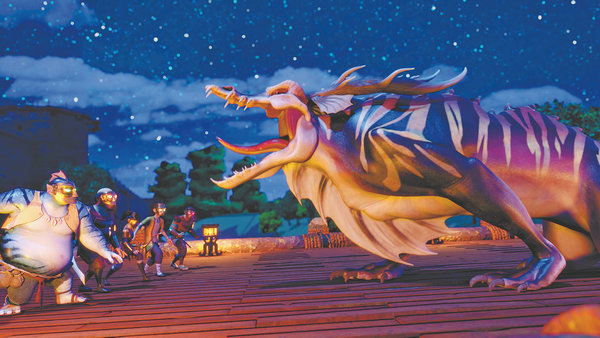

In Chinese culture, the dragon symbolizes power and auspiciousness. Throughout history, dragons have been used by many Chinese emperors to adorn their palaces, representing the pinnacle of authority. However, Western legends and myths mostly portray dragons as fire-breathing and malevolent beasts.
"We want the movie to introduce Chinese culture to a wider foreign audience. Therefore, our Chinese team tried hard to persuade their foreign counterparts that Zhu's dragon avatar should emanate a noble temperament. Comfortingly, they accepted our suggestion," says Zhang.
Speaking of the design of Yufu, the ruler of the kingdom depicted as the creator of Sanxingdui culture in the movie, Zhang recalls that the creative team conducted extensive research. They delved into legends and literary works such as the famous poem Shu Dao Nan (The Difficulty of Shu Roads) by Tang Dynasty (618-907) poet Li Bai, which mention the King Yufu on which the film is based.
"Yufu was originally depicted as a fisherman in certain legends and myths," Zhang says.
"We can only imagine what he looked like. The Western team once envisioned him as a slightly hunched, skinny old man. However, we still wanted his appearance to be more majestic and noble. The final design combines elements from both teams."
He adds that he hopes the film will encourage more international interest in China's ancient civilization and culture, as more related products are in the pipeline.